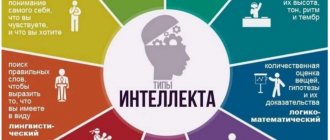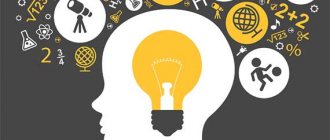What is emotional intelligence?
Emotional intelligence (EQ) is the ability to perceive, control, and critically evaluate emotions. Both your own and other people’s emotions. Some believe that this is a unique innate skill, others say that emotional intelligence can be developed.
The ability to monitor and manage your emotions is an important skill both in everyday life and in your career. Also in the work environment, the ability to read other people's emotions and respond appropriately to them is highly valued. All of this is closely related to emotional intelligence and helps people build more successful careers (and lives).
Why is emotional intelligence so important?
Because EQ is used in different areas of life. Increased emotional intelligence can influence a person's success in school and work. It allows you to show leadership qualities, find contact with different people and lead them. And also convince them that you are right.
Steadily developing emotional intelligence has a beneficial effect on physical health. It helps to work through stressful situations and reduce their impact on the body.
Also, uncontrolled emotions can lead to the manifestation of psychological diseases. Most often, improper handling of your feelings leads to anxiety and depression. Developed EQ helps to avoid such consequences.
Having developed emotional intelligence, it is easier to understand other people, perceive their emotions, express sympathy, choose the right words, etc. Together, this helps to build closer and more reliable relationships with colleagues and loved ones.
Emotional intelligence: how to develop it and improve your quality of life
Transformational trainer, MGIMO speaker and coach Evelina Levi told HiPO what emotional intelligence is, why modern HR specialists highly value this skill and what advantages emotional intellectuals have in everyday life.
Evelina Levy,
coach
Emotional intelligence (EI, EQ) is the ability to recognize emotions, evoke them at the right time and manage them. This applies to both your own emotional mood and the mood of other people.
There are many tests that determine EI scores: Hall, Goleman, Lucin, Sayer-Salovey-Caruso, Stein, Manoilova, and so on. The results are assessed on a scale from 0 to 100. A level of 60–70 points is considered average. I like the Hall test better than others. By the way, on its basis, I developed a test that students of my educational platform take before starting training.
In 1964, Professor Howard Gardner, in his research, first spoke about the fact that in addition to analytical intelligence, there is also sensory intelligence, later called EQ. Many scientists have tried to give it a clear definition: for example, Peter Salovey and John Mayer. But the book by journalist and psychologist Daniel Goleman, with whom I studied, became revolutionary. Goleman found that the level of development of EI is determined by several factors:
self-awareness
self-regulation
motivation
empathy
communication skills
People with developed emotional intelligence, all other things being equal (good memory, ability to concentrate, and so on), are more likely to achieve success in both personal and professional spheres. They understand themselves and their needs better, see strengths and weaknesses, interact with others more easily, and do not allow troubles to affect their general condition, unsettling them.
In 2020, EI was included in the top five most valuable skills according to international companies. The recruiting portal Career Builder found out that 71% of HR specialists believe that a developed EQ is more important for a candidate than IQ.
And 59% of recruiters are not ready to hire a person with low emotional intelligence, even if he demonstrates extraordinary mental abilities.
Productivity also directly depends on EI. This is especially noticeable during force majeure or time pressure. In such situations, a person must not only do the work, but also be able to pull himself together and get his bearings.
If we talk about ordinary life, it should be noted that the development of emotional intelligence is a way of working with fears and the inner critic that prevents us from growing.
EQ and IQ: what is more important
There is a myth that emotional intelligence is innate. Of course, a person can have abilities, as if he was good at mathematics or drawing from childhood. But still, EI is a skill that can and should be developed. Such as memory, concentration and other cognitive qualities.
Also, despite the research above, there is a misconception that EQ is not as important as IQ. It is not true. Which leg is more important - the right or the left? Both are important. Without developed thinking, you will not be able to study, plan, build a system of priorities, and without EI you will not be able to use the acquired knowledge with maximum benefit.
Any skill, be it EQ or riding a bike, requires mastery. Developed cognitive abilities are needed: memory, attention, thinking, the ability to perceive information and apply theory in practice. In this sense, IQ can be considered the basis for the formation of emotional intelligence.
On the other hand, without developed emotional intelligence it is difficult to achieve high results in mental activity. Let's say you are faced with a difficult task. You need to concentrate and put in all your strength. And you are emotionally drained. Without the energy that emotions provide, you cannot achieve the necessary concentration.
DARIA BELOGLAZOVA Subscription to all “Your Om” courses (1 month) 990 ₽
MYTH Never eat alone RUB 592
Emotional Intelligence and Communication
There is no need to set yourself the goal of changing the environment - as EI develops, this can happen naturally. It is difficult to be around people who do not meet our communication needs. You will instinctively be drawn to those who are close to you in spirit.
A high level of EI is manifested in behavior. This is the ability to cope with a stressful situation, understand the interlocutor and sympathize with him, but not allow him to “sit on his neck.”
Regarding emotional intelligence in men and women, there are different studies with conflicting conclusions. It is believed that due to maternal instinct, women have higher levels of emotional intelligence than men. Plus, women are supposedly more emotional, which means they have to deal with it. While men are distinguished by composure, rationality, and a tendency to push experiences inside. But we understand that these are just stereotypes... After all, in childhood, the differences between boys and girls are almost invisible.
Raising emotional intelligence in children
Children copy the behavior of adults, and nothing can teach them better than personal example. It is important to understand for yourself and explain to your child: there are no bad emotions. Do not criticize children for anger, resentment, or whims.
It is much more useful to state emotions: “I see that you are angry,” “I think you are ashamed.” Then the child understands what is happening to him, and it is easier for him to learn to manage his condition.
There are children's versions of emotion diaries. Every day, the baby needs to choose an emoticon that best conveys his feelings, or exercises and games that increase the level of awareness. For example, come up with a story in which a character encounters difficulties and becomes angry, offended, scared (these can be any emotions that you want to work through). And decide what is best for the fictional hero to do.
Together with your child, you need to learn not to throw out emotions, but to direct them in a useful direction. For example, in physical activity or creativity.
How to recognize high or low EI levels
In everyday life, a low level of EI is indicated by the inability to manage oneself. A person easily loses his temper, he is influenced by others, he is embarrassed to express resentment or love.
Emotional intellectuals, on the contrary, are less likely to succumb to panic and other people’s attempts to spoil their mood, know their emotional “weaknesses” and, instead of struggling with breakdowns, know how to prevent them. They are more receptive to the words and feelings of others (although they do not allow themselves to be manipulated), they are ready to give, and not just take. They adapt to change more easily.
It is believed that only 15% of people have high emotional intelligence. For example, Angelina Jolie gives the impression of just such a person. She shows sensitivity and compassion. Seems energetic, adaptive, aware. Based on what we know about the actress, we cannot say that she is prone to hysteria or sudden mood swings. However, she is not afraid to express emotions.
MYTH Don't interfere with your life. 632 RUR
HOLI YOGA& CAFÉ Subscription for 8 yoga classes at Holi Yoga& Cafe 7,300 ₽
Managing Emotions
You cannot control or suppress emotions. You simply won’t succeed: at some point they will take over and break out, sweeping away everything in their path.
Emotions need to be managed - environmentally, consciously, carefully. For example, when you are at your limit, tell yourself: I am angry because... This way you will concentrate on the problem, switch from emotional to rational.
Also, as I already said, you can direct the energy that emotion gives into a creative direction. The best thing is physical activity. Wash the dishes, do some squats, go for a run with the dog. The main thing is not to overload the body, otherwise you will feel empty.
Emotions obey the law of compensation: a rise is necessarily followed by a decline, and vice versa. It is important to maintain balance.
One of the important components of EI is awareness. Therefore it is useful to meditate. Practice calms, makes the connection between the body and emotions tangible, tangible, teaches you to receive and use energy.
It depends only on you how stable your emotional intelligence is. It requires constant training. Observe your state, increase your awareness (that is, understanding why and for what purpose you act this way and not otherwise), look for the connection between what is happening around you and your reaction. All this makes it possible to prevent unpleasant excesses, rather than deal with them when emotions are already going through the roof.
Even difficult trials will not be able to “finish” you if you work on emotional stability.
How to develop emotional intelligence
EQ develops in three stages:
— at the first stage, learn to distinguish and name emotions. There are about 80 of them, but most of us know only 10. I have an alphabet of emotions, it contains not only the emotional states themselves, but also a scale of severity, showing how energetically charged they are. For example, rage, ecstasy or euphoria give maximum energy, and disgust or grief - minimum (you are in decline);
- at the second stage, you study emotions - why they arise and how they manifest themselves. Journaling can help here. Every day, every 2-3 hours, write down how you feel, what events and people influenced you, where you are at this time and what you are doing. This is how connections are built between events and emotional reactions to them. Soon you will understand yourself better and learn to predict emotional outbursts;
- move on to managing emotions - this is a separate layer that cannot be described in a few words.
I advise you to read Daniel Goleman’s book “Emotional Intelligence. Why it can matter more than IQ" and "Emotional intelligence at work." There are few practical guides on EI, but, putting modesty aside, I also recommend my training book “The Practice of Managing Emotions,” in which I tried to provide a step-by-step and structured plan for the development of EQ.
There are exercises for each component of EI. For example, to better understand the feelings and emotions of others and increase empathy, you can try the mirror method. Try to copy facial expressions, gestures, head position and gaze of the other person as realistically as possible. Then you will probably feel the same as he did. Of course, this needs to be done alone with yourself.
To work with your own emotions, use breathing practices and the 10-second technique (in a stressful situation, count to ten before reacting).
However, everything is individual: what helps one person may not be effective for another, and vice versa. In any case, EQ development begins with the three stages that I described above. Try it - it's interesting.
Components of emotional intelligence
EQ is an entity made up of several individual skills. They are interconnected, but develop separately. They can also be present in one person, but in different proportions.
The human task is to analyze each component and regularly subject it to critical evaluation.
Communication skills
As I said above, emotional intelligence helps to establish and maintain contacts. This is especially important in professional activities when creating new business connections, communicating with partners, etc.
Also, developed communication skills help build more productive relationships between employees in the same office. They can ask for help and resolve any conflicts verbally.
A boss with a high EQ can raise serious issues and facilitate team discussion, achieving positive results from that discussion (for example, reaching a decision on an issue that concerns the entire office).
Motivation
This essence is closely related to EQ and is often included by experts as part of emotional intelligence. Motivation refers to the ability to set goals and achieve them.
Motivation is what creates the desire to perform certain tasks. A good motivator can motivate a whole group of people to complete even extremely difficult tasks.
Motivation also makes it possible to better cope with failures, assess the situation and return to work.
Empathy
The most important part of developed emotional intelligence is the ability to read other people's emotions and plan your actions based on how other people feel. Correct interpretation of emotions makes it possible to choose the best time to make difficult decisions. Employees with developed empathy are able to predict the reactions of others and avoid possible problems and conflicts.
Concern about other people's thoughts and feelings in the team creates a healthier and more humane atmosphere in the team. In modern society, no matter how trivial it may sound, this approach helps to increase productivity, reduce the overall level of stress and anxiety, and also reduce turnover due to a comfortable working environment for everyone.
Social responsibility
This skill gives a person the opportunity to recognize himself as part of a team and learn to work with other people. This type of responsibility obliges a person to be responsible for the decisions made and the overall result of the work. An important skill for those planning to take a leadership position.
Feeling responsible for the outcome of the activity, each employee will try to do the maximum so that the team does not “fail”. There will be no anchor employees who think that everything will be decided for them.
Ability to control and resolve conflicts
Another aspect of emotional intelligence that is highly valued in a professional environment. The ability not only to smooth over conflicts, but to resolve them, clearly understanding the causes and consequences.
Teams consisting of such workers show high efficiency in even the most difficult situations. Productivity increases, any destructiveness is transformed into constructiveness. Conflicts are perceived as a way to realize mistakes and become better.
The whole article in one minute
- EQ (Emotional Quotient) is the ability to recognize one’s own and others’ emotions and manage them.
- Emotional intelligence is twice as important as hard skills.
- A person with a high EQ can easily cope with stress at work, effectively resolve conflicts, and obtain the necessary information and action from colleagues.
- To find out your EQ, you need to take the 141-question MSCEIT questionnaire or our eight-question test.
- Emotional intelligence can be developed in three steps: regularly write down your emotions, understand the reasons for your feelings, use methods that calm you (breathing, meditation, walking) or energize you (sports, dancing, loud and cheerful music). And if you want to fully understand the topic, read books from our selection.
How to use EQ?
It can be used in a variety of life situations.
- Learn to accept criticism so as not to enter into conflicts.
- Learn to cope with mistakes and constantly move forward.
- Be able to say “no” when the situation demands it. In everyday life and at work.
- It is correct to share your emotions with other people, without inventing anything or deceiving others.
- Know what exactly you are doing and why you are doing it. That is, to competently cope with goal setting.
- Be able to correctly evaluate the actions of other people and not judge them excessively.
How is EQ measured?
Typically, not a general metric is used, but several different ones, depending on the specific EQ component.
- There is a test to assess communication skills from Ilyin.
- Mikhelson's communication skills test.
- Test for assessing the level of motivation from Ehlers.
- Test for the degree of motivation and fear of failure from Rvan.
- Mehrabian empathy level assessment system.
- Test of human empathic abilities from Boyko.
- Ilyin has a test for the degree of conflict of an individual and a test for checking the level of personal aggression.
How to develop emotional intelligence?
Special literature is needed. Read books on improving communication skills, books on empathy, etc. Interact with people more often and be aware of your actions.
There are several simple strategies to improve your EQ. You only need to pay attention to three main actions.
Learn to listen
To understand other people's feelings, it is important to learn to pay enough attention to them. Spend your precious time on the other person and try to understand what he wants to convey to you. Moreover, pay attention not only to verbal signs, but also to non-verbal ones.
Body language is an important metric for assessing a person’s behavior, his intentions, desires, etc. People with developed emotional intelligence are able to read this language correctly and understand other people better.
Develop empathy
Understanding other people's feelings is a critical skill in business, but equally important in everyday life. The skill of feeling yourself in someone else's shoes allows you to objectively evaluate the actions, words and decisions of other people.
Only with a sufficient level of empathy can you correctly assess the intentions of other people. And knowing this information, you can adjust your behavior so that every communication ends in success. For example, do not interfere with a person who is clearly in a bad mood, or stop speaking if the interlocutor feels discomfort.
Reflect on your own emotions
This skill will help you not go crazy. You need to live in harmony with your feelings. Monitor moments when emotions take over and force you to make decisions that have not been clearly analyzed before.
To the extent of control, to the extent of analysis. Don't try to suppress everything, but learn to manage it. This is your task as you develop your EQ.
It is also important to understand why certain feelings force people to make decisions. This will allow you not only to get along better with colleagues and loved ones, but also to predict some of their decisions, coupled with their habits.
Potential Difficulties for People with High EQs
In fairness, it is necessary to mention the possible disadvantages of increased emotional intelligence. Balance is required everywhere, and too much EQ can be just as dangerous as too little.
- Scientists have confirmed that people with high EQ are often characterized by low creativity and do not generate innovative ideas.
- People with a high level of empathy do not know how to express criticism, which makes their life more difficult, completely ignoring the shortcomings of other people because of their fears.
- Well, the most significant thing is that people with high EQ are often used for their own purposes. Manipulative interaction schemes are used.
Key Signs of a Person with Low Emotional Intelligence
A person with a low EQ constantly argues with everyone and gets involved in polemics
You probably know people who argue always and everywhere, dragging their friends, family members, colleagues and just strangers into the argument. Low emotional intelligence causes a person to argue with others without understanding their emotions.
A person with low EQ does not understand other people's feelings
People with low EQ do not pay attention to other people's feelings. They cannot imagine that, for example, a spouse could be angry or co-workers could be irritated by something. Moreover, they are dissatisfied with the fact that other people expect understanding and sympathy from them. Emotions, in general, unsettle people with low emotional intelligence.
A person with a low EQ believes that others are overly sensitive
People with low EQ may make jokes at inappropriate times, such as at a funeral or after a tragic event. Without understanding people's feelings, they are unable to grasp the emotional tone of such events. When others are outraged by such inappropriate jokes, people with low emotional intelligence believe that they are being overly sensitive.
People with low EQ refuse to listen to another person's opinion
People with low emotional intelligence are confident that they are right and stubbornly defend their point of view, refusing to listen to others. They are often pessimistic, overly critical of the thoughts and feelings of other people, and intolerant of other people's ideas. They are characterized by stubbornness and inability to show flexibility.
People with low EQ blame others for mistakes
People with low emotional intelligence have no understanding of how their own emotions can create problems. When things go wrong, they blame other people and defend themselves. Their main argument is that they had no other choice, and that others simply do not understand the situation in which they find themselves. They always try to avoid responsibility and feel like a victim of circumstances.
People with low EQ are unable to cope with emotionally stressful situations
People with low emotional intelligence have difficulty understanding strong feelings, both their own and those of others. They are unable to withstand adverse events and stressful situations. As a rule, they try to get away from such situations, avoiding emotional turmoil. They are characterized by a desire to hide their personal emotions.
Unexpected emotional outbursts in people with low EQ
The ability to manage emotions is one of the important components of emotional intelligence. Low self-control and a low level of awareness of one’s emotions make the influence of the situation on a person’s behavior decisive. It is the situation that provokes him to certain actions and emotional reactions. Which explains impulsivity, unexpected uncontrollable emotional outbursts in people with low EQ.
People with low EQ have difficulty maintaining friendships
Friendship requires mutual giving, empathy, emotional support, all the things that people with low emotional intelligence struggle with. They are prone to offense and do not know how to forgive.
A person with low EQ lacks empathy
Because people with low emotional intelligence do not understand the emotions and feelings of others, they are unable to empathize and sympathize with others. They cannot put themselves in the place of another person.











